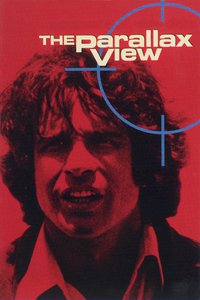The Parallax View (1974)

Don’t write Warren Beatty off as that slightly addled old man who often appears alongside his wife, Annette Bening, at awards shows. In his day, he was one of the most intense leading men of his generation: an actor, director and producer of significant intelligence and depth. His back catalogue includes some outstanding work, not least of which is this genuinely shocking political thriller.
Hard drinking journalist Joe Frady (Beatty) is a witness to the assassination of a Californian senator, which is officially decreed to have been the work of a lone gunman. When, a couple of years later, a TV news colleague and former girlfriend, Lee (Paula Prentiss), comes to him with a conspiracy theory, pointing out that the other witnesses to the event are being picked off one-by-one, he doesn’t believe her. The deaths, he reasons, are coincidental and not unexpected: a notorious drinker dying in a car crash, a stressed and overworked man dying of a heart attack, etc. But when Prentiss herself turns up dead, he begins to investigate, despite the warnings of his boss (Cronyn).
The parallels with the assassination of JFK are obvious here. The Commission which decrees the assassination to have been the work of a lone gunman is instantly recognisable as the Warren Commission, which investigated the November 1963 murders in Dallas. And the truth that Beatty begins to uncover all too vividly—that there is a shadowy governmental agency which hires political assassins through the shady Parallax Corporation—again taps into the myth surrounding Kennedy.
Beatty’s slow, thoughtful delivery is perfect here, as each lead he chases down puts him—and those around him—in even greater danger than he understands. Given that the film was made in 1974, the contempt of all things political that was generated by the Watergate scandal also hangs heavy over the production. Alan J Pakula also directed Watergate thriller All the President’s Men and there’s a similarity in theme and tone about the two films. Atmospheric and claustrophobic, it’s a film which has aged surprisingly well, tapping into modern (particularly American) audiences’ mistrust of government and intelligence agencies.
The action never flags from start to finish and comes full circle, ending, as it began, with a political assassination, but holding you gripped right the way through.
Added 13 May 2019:
If this film captured the post 9/11 mood when I first reviewed it in 2002, it’s even more perfect for the political reality of the late 2010s. Having rewatched it recently, it completely stands the test of time and, like All the President’s Men (or the more modern Searchlight and the The Post), shows you how cinema can truly contribute to our understanding of the everyday horrors of both small-p and large-p politics.